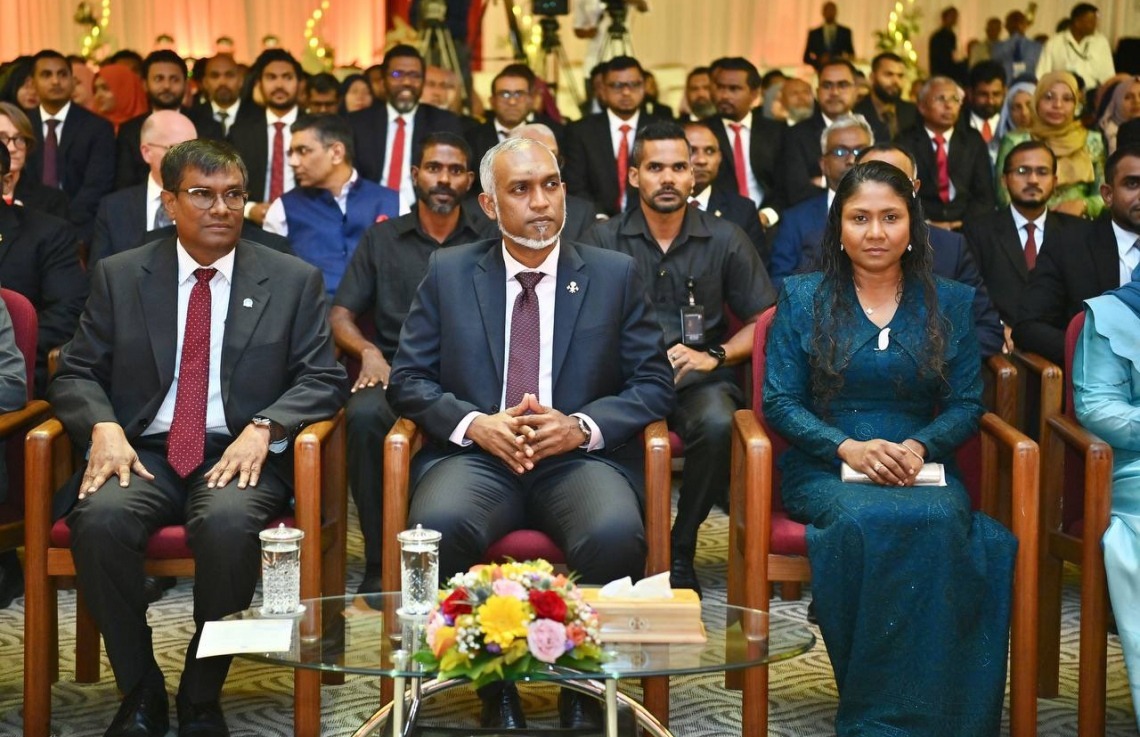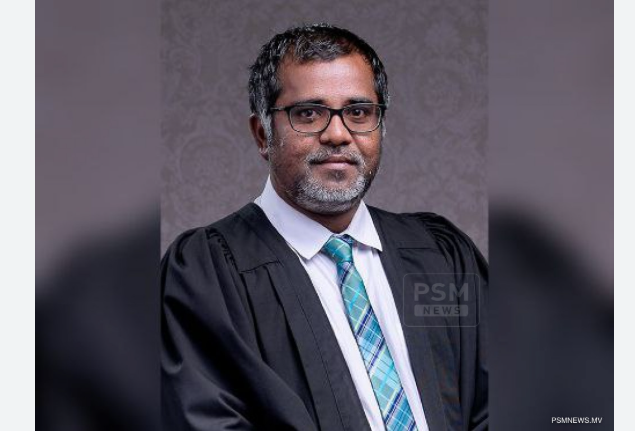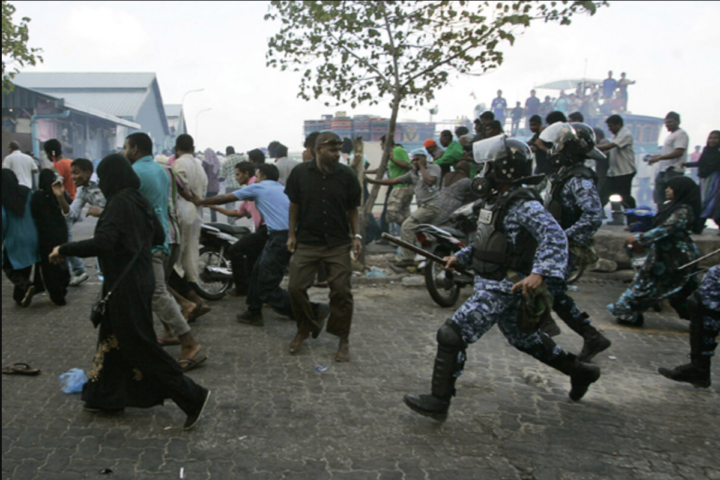In a solemn declaration during the inaugural ceremony of the judicial year, Chief Justice Ahmed Muthasim Adnan underscored the critical need for immediate resolution as criminal proceedings in the city have come to a standstill. The dilapidated state of the building, worsened by damage from leaky walls and roofs during the rainy season, severely impedes the Criminal Court’s functionality, restricting it to only issuing necessary court orders. Chief Justice Muthasim urgently called on all relevant state organs to address this issue promptly, emphasizing its potential adverse impact.
The ceremony, attended by President Dr. Mohamed Muizzu, ministers, justices, judges, judicial staff, and state officials, accentuated the pressing need for swift solutions to the challenges plaguing the judiciary.
Chief Justice Muthasim addressed the space constraints afflicting the courts, acknowledging the difficulties faced by the Criminal Court, Family Court, and Drug Court. While magistrate courts in certain islands grapple with spatial limitations and undergo repair work, he acknowledged the continued rendering of services in these courts despite the challenges.
On the legal front, Chief Justice Muthasim acknowledged substantial challenges in implementing the Civil Procedure Code and the Criminal Procedure Code. These laws contribute to case stagnation and demand reform, with the judiciary pledging its cooperation in this endeavor.
“The objectives set by the Parliament for these laws have not been achieved, resulting in delays and overwhelming case backlogs,” remarked the Chief Justice. He stressed the importance of identifying challenges in implementing these laws with the judiciary’s assistance.
During his address, Chief Justice Muthasim shed light on the contentious issue of the Judicial Service Commission’s (JSC) composition, advocating for a change. He underscored the need to align the administrative management of the judiciary with international best practices.
Furthermore, Chief Justice Muthasim called for changes to fortify the system of providing legal assistance by the state at the state’s expense. He emphasized the significance of offering state-funded legal assistance in both civil and criminal cases.















